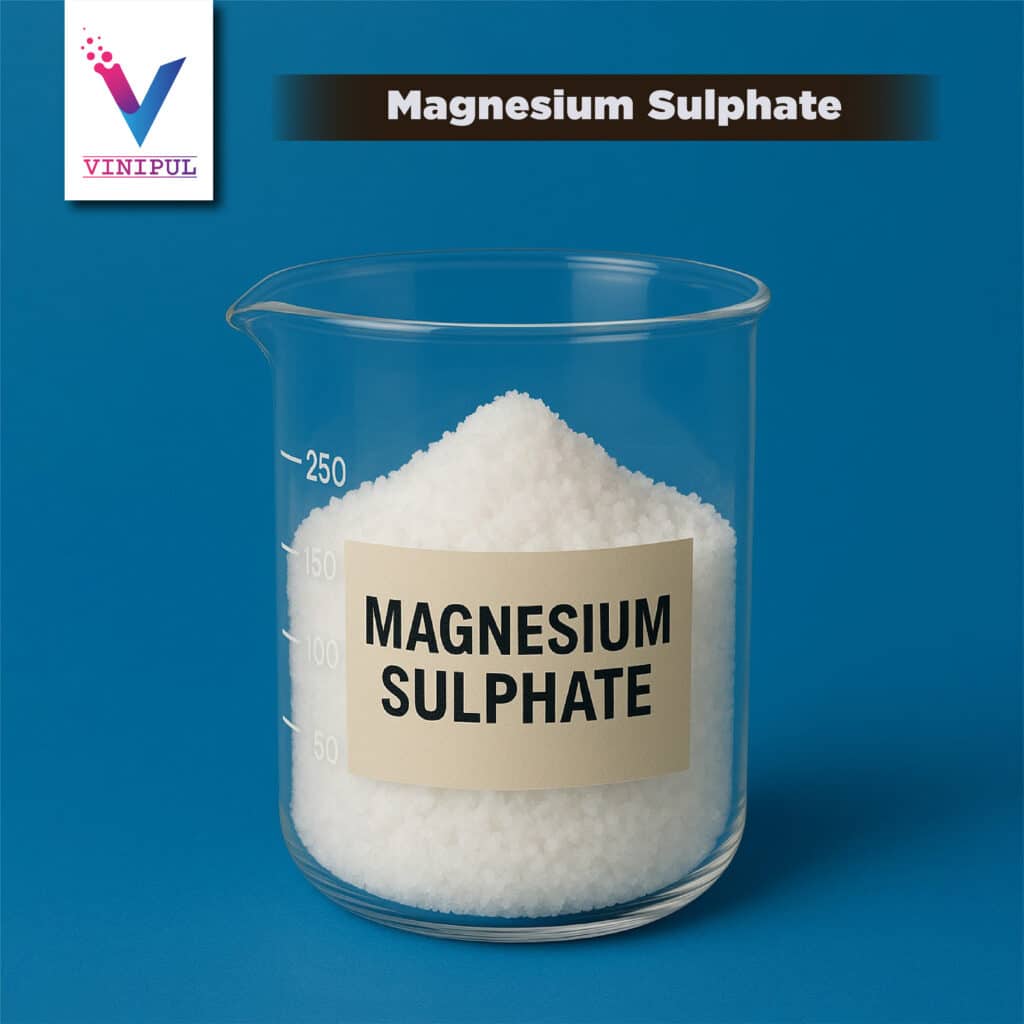Magnesium Sulphate Manufacturer and Supplier
CAS No.: 7783-28-0 | EC Number.: 231-987-8 | Molecular formula.: (NH4)2HPO4, [NH4]2HPO4, H9N2O4P
Magnesium Sulphate
Magnesium Sulphate Manufacturers, Magnesium Sulphate Suppliers, Magnesium Sulphate Formula, Magnesium Sulphate MSDS, Magnesium Sulphate SDS, Magnesium Sulphate Exporter in Mumbai, India.
Vinipul Chemicals Pvt. Ltd., a renowned manufacturer, supplier, and exporter based in India, specializes in producing high-purity Magnesium Sulphate (CAS No. 7487-88-9), a specialty chemical widely used in various industries. As a reliable magnesium sulphate manufacturer, our company is highly regarded for its commitment to providing MgSO4 with impeccable quality, accurate composition, and free from impurities.
To ensure the exceptional purity of our Magnesium Sulphate, we employ superior quality chemicals and employ state-of-the-art manufacturing equipment that adheres to international industry standards. As a prominent magnesium sulphate supplier, this meticulous approach allows us to deliver a product that meets the stringent requirements of our customers. At Vinipul Chemicals Pvt. Ltd., we take pride in offering Magnesium Sulphate of the finest quality. Our dedicated team ensures that each batch is meticulously formulated to achieve the precise composition required by our clients. This commitment to accuracy and consistency sets us apart in the market.
As a reputable magnesium sulphate manufacturers in India, our product boasts an extended shelf life, providing our customers with the assurance of long-lasting effectiveness and stability. This attribute is particularly beneficial for industries that rely on the reliable supply of high-purity Magnesium Sulphate for their manufacturing processes.
What is Magnesium Sulphate?
Magnesium sulfate, also known as magnesium sulphate, is a chemical compound that consists of magnesium cations (Mg2+) and sulfate anions (SO42-). Its formula is MgSO4. This white crystalline solid is soluble in water but not in ethanol. Magnesium sulfate is commonly found in hydrated forms, where water molecules are associated with the compound. These hydrated forms have different values of “n” ranging from 1 to 11. The most widely recognized hydrated form is the heptahydrate, MgSO4·7H2O, which is commonly referred to as Epsom salt. Epsom salt is a household chemical with a variety of traditional uses, including as bath salts for relaxation.
The primary application of magnesium sulfate is in agriculture, where it is used to correct magnesium-deficient soils. Magnesium is an essential nutrient for plants due to its role in chlorophyll production and photosynthesis. The monohydrate form of magnesium sulfate is typically preferred for agricultural purposes. By the mid-1970s, the annual production of monohydrate magnesium sulfate reached 2.3 million tons.
In addition to its agricultural use, magnesium sulfate occurs naturally in various mineral forms, both in anhydrous form and as hydrates. It is also a significant component of water from certain springs. Overall, magnesium sulfate plays a crucial role in agriculture as a soil amendment and finds applications in other fields as well. Its versatility and widespread availability make it a valuable compound in various industries.
Magnesium Sulphate Details
This table provides information about Magnesium Sulphate, a chemical compound with the CAS No. 7487-88-9 and EC Number. 231-298-2. The table also lists various Magnesium Sulphate common name and synonyms. The table contains Magnesium Sulphate structure, Magnesium Sulphate solubility and molecular formula. Magnesium Sulphate pH. value is also mentioned in the table. Magnesium Sulphate is commonly used in various industries in different applications. It is also used in the pharmaceutical industry for various purposes.
Specifications
| Chemical name | Magnesium Sulphate |
| CAS No | 7487-88-9 |
| EC Number | 231-298-2 |
| Commercial name / Synonyms | Magnesium sulfate anhydrous, Sulfuric acid magnesium salt (1:1), MgSO4, Magnesium sulfate (1:1), Magnesiumsulfat, Sulfuric acid magnesium salt |
| Molecular formula | MgSO4 MgO4S |
| Chemical Structure | 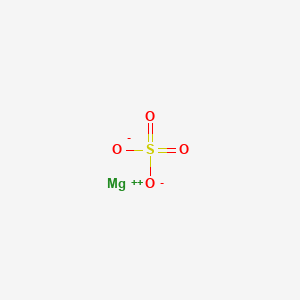 |
| Melting Point | 1124°C (decomposition) |
| IUPAC Name | magnesium;sulfate |
| Component Compounds | Magnesium Sulfuric Acid |
| Physical Form | Colourless crystalline solid |
| Physical Appearance | Dry Powder / Liquid / Dry Powder, Pellets Large Crystals / Gas Vapor |
| Solubility | 1.16 g/ (100 mL) (18 °C, ether) slightly soluble in alcohol, glycerol insoluble in acetone |
| Solubility in water | 20 g/100 ml at 0 °C, 73.8 g/100 ml at 100 °C. |
| pH | Neutral to litmus |
| Packaging Details | 25 kg / 50 kg / HDPE packaging bags / Drum/ As per Client’s requirements |
Computed Properties
The table provides various properties of a chemical compound, including its Magnesium Sulphate molar mass, four hydrogen bond acceptor counts, an exact mass and mono-isotopic mass, heavy atom counts, and a topological polar surface area. These properties are useful in identifying and characterizing the compound for various purposes in industries such as pharmaceuticals and chemicals.
| Property Name | Property Value |
| Molecular Weight | 120.37 g/mol |
| Hydrogen Bond Acceptor Count | 4 |
| Exact Mass | 119.9367713 g/mol |
| Monoisotopic Mass | 119.9367713 g/mol |
| Heavy Atom Count | 6 |
| Topological Polar Surface Area | 88.6Ų |
| Complexity | 62.2 |
| Covalently-Bonded Unit Count | 2 |
| Compound Is Canonicalized | Yes |
Related Compounds with Annotation
Magnesium Sulphate Price
| Product Range | Price |
| Magnesium Sulphate Heptahydrate | Rs 11.50/Kg |
| Magnesium Sulphate Monohydrate | Rs 18/kg |
Prices shown above are provisional prices and may change due to different market conditions for latest prices
Call Us
+91-932 223 1817
Mail Us
business@vinipulchemicals.com
Types of Magnesium Sulphate
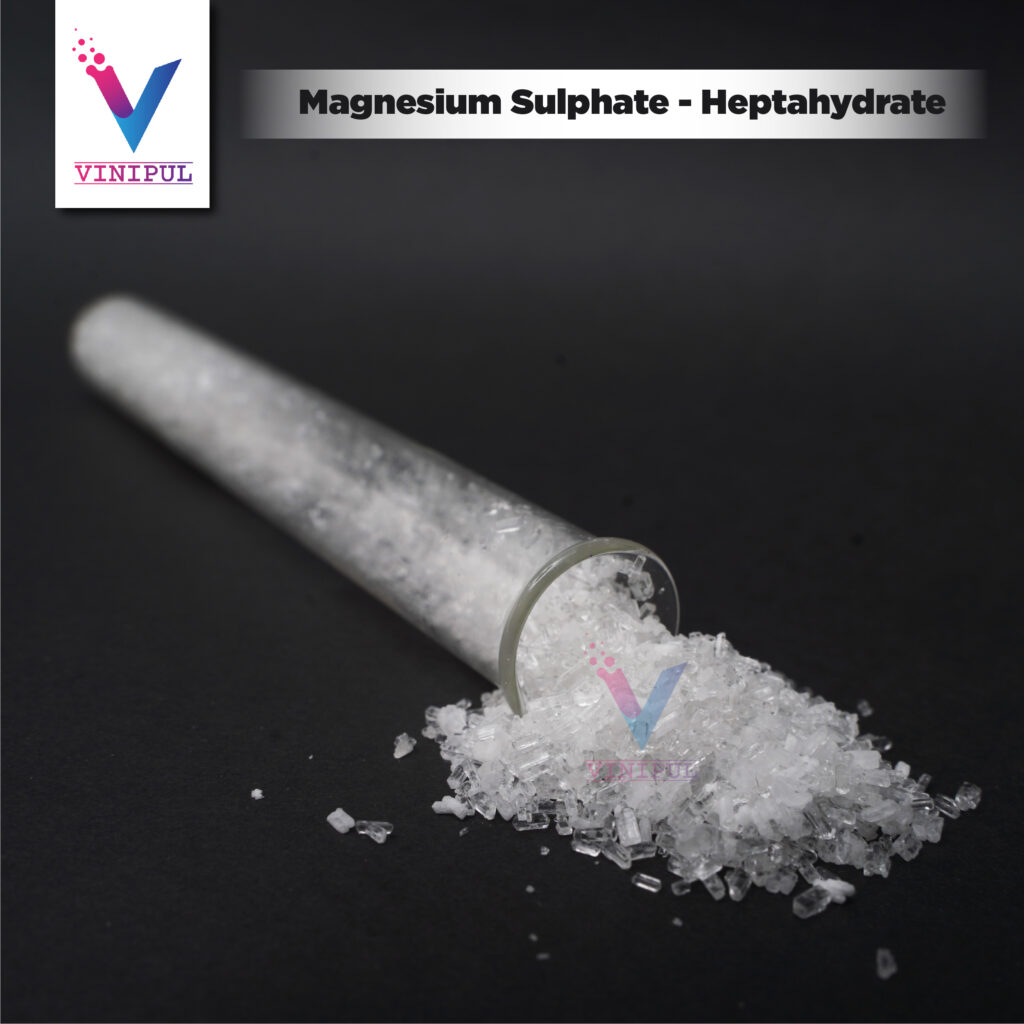
Magnesium Sulphate Heptahydrate
This type of Magnesium Sulphate is also known as Epsom salt. It has the chemical formula MgSO4·7H2O, which means it is composed of magnesium sulphate combined with seven water molecules. Magnesium Sulphate Heptahydrate appears as colourless crystals with a characteristic bitter taste. It is highly soluble in water and commonly used in various applications. Epsom salt has a wide range of uses, including as a household remedy
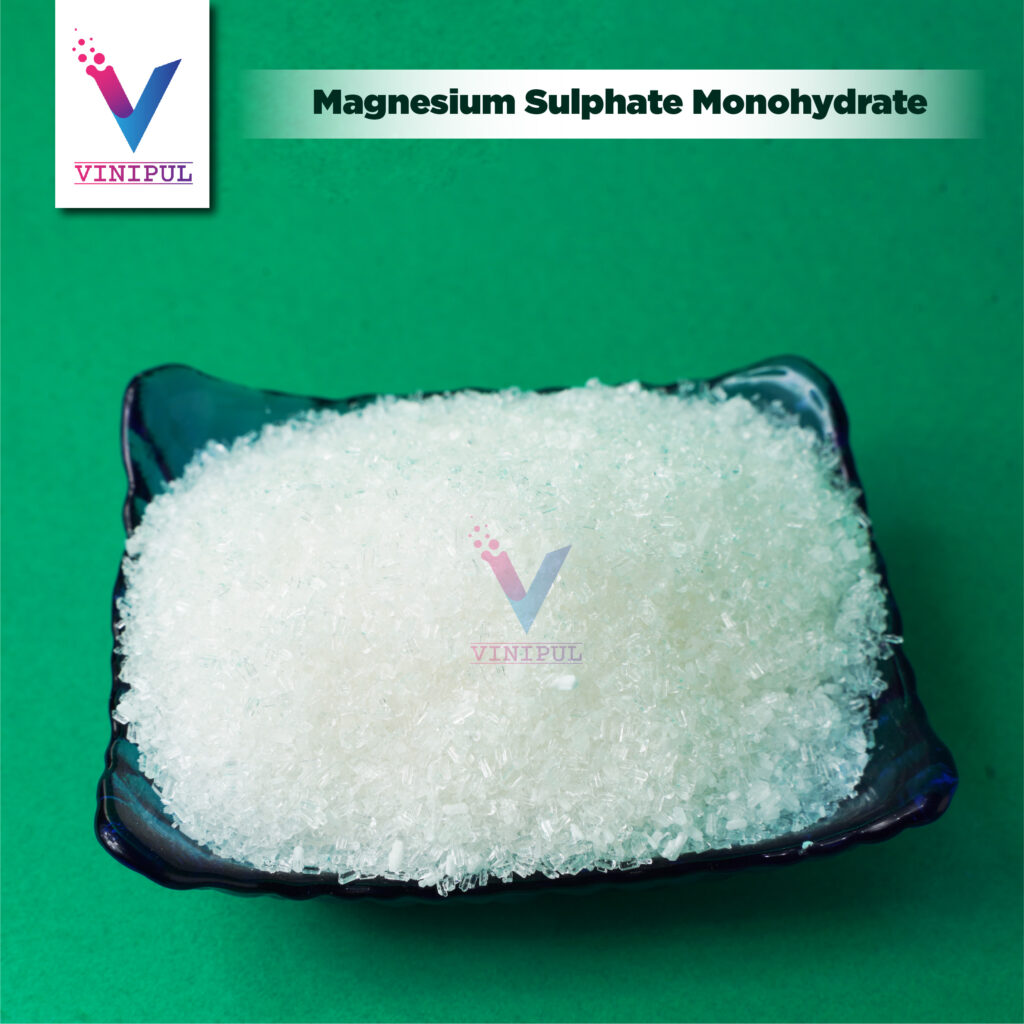
Magnesium Sulphate Monohydrate
This form of Magnesium Sulphate has the chemical formula MgSO4·H2O. It consists of magnesium sulphate combined with a single water molecule. Magnesium Sulphate Monohydrate appears as white crystals and is also soluble in water. It is used in different industries, including agriculture as a soil amendment to correct magnesium deficiencies in plants. It can also be utilized in pharmaceutical and chemical applications.
Magnesium Sulphate Manufacturing Process
The manufacturing process of Magnesium Sulphate involves several steps to ensure the production of a high-quality and pure product. Here is a general overview of the process:
- Sourcing Raw Materials: The first step is to acquire the raw materials required for the production of Magnesium Sulphate. The main ingredients are magnesium oxide (MgO) and sulphuric acid (H2SO4). These raw materials should meet specific quality standards to ensure the desired purity of the final product.
- Dissolution: Magnesium oxide is dissolved in water to form a magnesium hydroxide (Mg(OH)2) solution. This step requires careful control of temperature and agitation to ensure complete dissolution.
- Neutralization: Sulphuric acid is slowly added to the magnesium hydroxide solution while maintaining proper temperature and stirring. This reaction leads to the formation of Magnesium Sulphate and water. The reaction is exothermic, so temperature control is crucial to prevent overheating.
- Crystallization: The Magnesium Sulphate solution is further concentrated through evaporation to encourage the formation of crystals. Various techniques such as cooling, vacuum evaporation, or controlled precipitation can be employed to facilitate crystal growth.
- Filtration: Once the desired crystal size is achieved, the mixture is passed through filters to separate the solid crystals from the liquid. Filtration helps remove impurities and unwanted by-products.
- Washing: The filtered Magnesium Sulphate crystals are washed with water to remove any residual impurities adhering to the surface. This step enhances the purity of the final product.
- Drying: The washed crystals are then dried to remove the remaining moisture. Different drying methods such as air drying, vacuum drying, or low-temperature drying can be employed based on the specific requirements and characteristics of the Magnesium Sulphate crystals.
- Packaging: The dried Magnesium Sulphate crystals are carefully packaged in suitable containers to ensure their preservation and prevent moisture absorption. Proper labelling and documentation are also necessary to comply with industry standards and regulations.
Throughout the manufacturing process, strict quality control measures are implemented to monitor the composition, purity, and physical properties of the Magnesium Sulphate. This ensures that the final product meets the required specifications and can be used with confidence in various industries and applications.
What is magnesium sulphate for fertilizer?
Magnesium sulphate serves as a vital secondary nutrient in agriculture, primarily used to address magnesium deficiency in the soil. It plays a crucial role in ensuring healthy plant growth and development. Magnesium is essential for various physiological processes within plants, including enzyme activation, chlorophyll synthesis, and energy production. By providing magnesium through the application of magnesium sulphate, farmers and gardeners can effectively correct deficiencies and promote optimal plant nutrition. Additionally, magnesium sulphate enhances the uptake of other important nutrients such as nitrogen and phosphorus, further contributing to the overall nutrient balance in the soil. This makes it particularly beneficial for crops that require magnesium-rich soil to thrive. Moreover, magnesium sulphate finds wide usage in potting mixes, aiding in the cultivation of healthy and vibrant plants in containers.
Magnesium sulphate acts as a valuable nutrient source for plants, specifically addressing magnesium deficiency in the soil. Its ability to enhance nutrient uptake and support key plant processes makes it a preferred choice for promoting healthy crop growth. Whether used in agricultural settings to improve magnesium levels in the soil or in potting mixes for container gardening, magnesium sulphate plays a crucial role in providing plants with the necessary nutrients for their optimal development.
Can we mix urea with magnesium sulphate?
Yes, urea and magnesium sulphate can be mixed together. In fact, this combination is commonly used in agricultural practices to provide plants with both nitrogen and magnesium, two essential nutrients for their growth and development. Urea is a nitrogen fertilizer widely used to supply plants with a readily available source of nitrogen. It helps promote leaf growth, enhance protein synthesis, and increase overall plant productivity. On the other hand, magnesium sulphate is utilized to correct magnesium deficiencies in the soil and improve nutrient uptake by plants.
When urea and magnesium sulphate are mixed together, the nitrogen from urea and the magnesium from magnesium sulphate become available for plant uptake. This combination allows for the simultaneous provision of nitrogen and magnesium, ensuring that plants receive the necessary nutrients for their optimal growth.
However, it’s important to note that proper mixing ratios and application rates should be followed to avoid nutrient imbalances or over-fertilization. It is recommended to consult with agricultural experts or follow specific guidelines provided by fertilizer manufacturers to ensure the appropriate use of urea and magnesium sulphate mixture for your specific crop and soil conditions.
Is magnesium sulphate acidic or basic?
Magnesium sulphate is considered a neutral compound and is neither acidic nor basic. In its pure form, it does not exhibit acidic or basic properties. When dissolved in water, it dissociates into magnesium ions (Mg2+) and sulphate ions (SO42-). Neither of these ions contributes to acidity or basicity in aqueous solutions. Therefore, magnesium sulphate is generally regarded as a neutral compound. However, it is worth noting that the pH of a solution containing magnesium sulphate may be influenced by other factors, such as the presence of impurities or the pH of the surrounding environment.
What is Magnesium Sulphate used for?
Magnesium Sulphate finds extensive use in various industrial applications due to its unique properties and versatile nature. Here are some notable magnesium sulphate uses:

Agriculture
One of the primary applications of Magnesium Sulphate is in agriculture. It is utilized as a fertilizer to provide plants with essential magnesium, which is crucial for chlorophyll synthesis and photosynthesis. Magnesium-deficient soils can be corrected by applying magnesium sulphate fertilizer to enhance crop yields and overall plant health.

Pharmaceutical Industry
Magnesium Sulphate is used in the pharmaceutical industry for several purposes. It is employed as an ingredient in medications and treatments for conditions such as magnesium deficiencies, eclampsia, pre-eclampsia, and as a laxative. It can also be utilized in topical preparations and bath salts for their therapeutic properties.
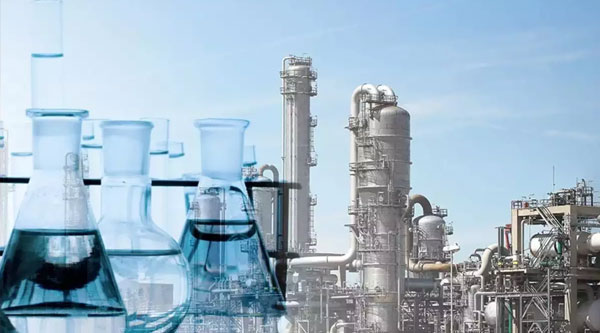
Chemical Industry
In the chemical industry, Magnesium Sulphate serves various functions. It is used as a precursor in the production of other magnesium compounds, such as magnesium hydroxide and magnesium oxide. It also acts as a desiccant to absorb moisture in certain chemical processes and can be employed in the synthesis of other chemical compounds.

Textile Industry
Magnesium Sulphate finds application in the textile industry as a dyeing and printing agent. It assists in improving the dye absorption and colour fastness of fabrics, making it a valuable additive in textile processing.

Construction Industry
Magnesium Sulphate is utilized in the construction industry for its fire-resistant properties. It can be added to cement or concrete formulations to enhance their fire resistance and reduce the risk of structural damage in case of fire incidents.

Water Treatment
Magnesium Sulphate is employed in water treatment processes. It helps to control scale formation, especially in boilers and cooling systems, by preventing the precipitation of calcium and magnesium carbonates.
These are just a few examples of the industrial applications of Magnesium Sulphate. Its versatility and wide range of uses make it a valuable compound across various industries, contributing to agricultural productivity, pharmaceutical advancements, chemical synthesis, and other industrial processes.
Where to buy Magnesium Sulphate?
If you are looking to buy Magnesium Sulphate, Vinipul Chemicals Pvt. Ltd. is an excellent option to consider. We are a reputable manufacturer, supplier, and exporter based in India, known for producing high-purity chemicals. You can directly contact us to inquire about purchasing Magnesium Sulphate. As a leading magnesium sulphate suppliers, Vinipul Chemicals offer a wide range of products and are well-known for commitment to quality, accurate composition, and adherence to international industry standards. As a leading magnesium sulphate manufacturers, we can provide you with the required information regarding product availability, pricing, and shipping options.
To initiate the purchase process, you can reach out to Vinipul Chemicals Pvt. Ltd. through our website, email, or contact numbers provided on our official platform. Our dedicated team will be able to assist you in procuring the desired quantity of high-purity Magnesium Sulphate that meets your specific requirements
FAQ's
The common types of Magnesium Sulphate are Magnesium Sulphate Heptahydrate (MgSO4·7H2O) and Magnesium Sulphate Monohydrate (MgSO4·H2O).
Magnesium Sulphate is used as a fertilizer to correct magnesium deficiencies in the soil and promote healthy plant growth. It is especially beneficial for crops that require magnesium-rich soil.
Yes, Magnesium Sulphate has various applications in the pharmaceutical industry. It is used in medications, treatments for magnesium deficiencies, and as a component in topical preparations and bath salts.
Magnesium Sulphate is a neutral compound and is neither acidic nor basic.
Yes, Magnesium Sulphate helps improve the uptake of other essential nutrients like nitrogen and phosphorus by plants.
Yes, Magnesium Sulphate can be mixed with urea. This combination provides both nitrogen and magnesium to plants, promoting their growth and development.
Yes, Magnesium Sulphate is soluble in water but not in ethanol.
Yes, Magnesium Sulphate can enhance the fire resistance of materials like cement or concrete when added to their formulations.
Magnesium Sulphate is generally safe for human use when used as directed. However, it is important to follow proper guidelines and consult healthcare professionals for specific applications.
Yes, Magnesium Sulphate, especially the heptahydrate form (Epsom salt), is commonly used in bath salts for its therapeutic properties and relaxation benefits.
Magnesium Sulphate has a long shelf life if stored properly in a dry and sealed container. It is recommended to follow the manufacturer’s instructions regarding storage and shelf life.
Yes, Magnesium Sulphate is commonly used in gardening and horticulture as a soil amendment to correct magnesium deficiencies and promote healthy plant growth.
You can buy Magnesium Sulphate from chemical suppliers, agricultural supply stores, or directly from manufacturers like Vinipul Chemicals Pvt. Ltd., who specialize in producing high-purity Magnesium Sulphate.
Market Area
We supply and exports Magnesium Sulphate in all parts of the world such as
Magnesium Sulphate in Africa Countries
South Africa , Nigeria, Kenya, Ghana, Ethiopia, Tanzania, Algeria, Angola, Benin, Botswana, Burkina Faso, Burundi, Cabo Verde, Cameroon, Central African Republic (CAR), Chad, Comoros, Democratic Republic of the Congo, Côte d’Ivoire, Djibouti, Egypt, Equatorial Guinea, Eritrea, Gabon, Gambia, Guinea, Guinea-Bissau, Lesotho, Liberia, Libya, Madagascar, Malawi, Mali, Mauritania, Mauritius, Morocco, Mozambique, Namibia, Nigeria, Rwanda, Sao Tome and Principe, Senegal, Seychelles, Sierra Leone, Somalia, South Sudan, Sudan, Swaziland, Togo, Tunisia, Uganda, Zambia, Zimbabwe.
Magnesium Sulphate in Gulf Countries
Oman, Qatar, Kuwait, Saudi Arabia, Dubai, Bahrain, Iran, United Arab Emirates
Magnesium Sulphate in Asia Countries
Afghanistan, Armenia, Azerbaijan, Bahrain, Bangladesh, Bhutan, Brunei, Cambodia, China, Cyprus, Georgia, India, Indonesia, Iran, Iraq, Israel, Japan, Jordan, Kazakhstan, Kuwait, Kyrgyzstan, Laos, Lebanon, Malaysia, Maldives, Mongolia, Myanmar (Burma), Nepal, North Korea, Oman, Pakistan, Palestine, Philippines, Qatar, Russia, Saudi Arabia, Singapore, South Korea, Sri Lanka, Syria, Taiwan, Tajikistan, Thailand, Timor-Leste, Turkey, Turkmenistan, United Arab Emirates (UAE), Uzbekistan, Vietnam, Yemen
We supply Magnesium Sulphate in all parts of India.
Andhra Pradesh, Arunachal Pradesh, Assam, Bihar, Chhattisgarh, Goa, Gujarat, Haryana, Himachal Pradesh, Jammu & Kashmir, Jharkhand, Karnataka, Kerala, Madhya Pradesh, Maharashtra, Manipur, Meghalaya, Mizoram, Nagaland, Odisha, Punjab, Rajasthan, Sikkim, Tamil Nadu, Telangana, Tripura, Uttarakhand, Uttar Pradesh and West Bengal.
Note: – Please be advised that the information contained in this document is intended for illustrative purposes only. Due to variations in product grade, applications, industries, or uses, the accuracy of the information provided cannot be guaranteed. © Copyright 2023 © Vinipul Chemicals All Rights Reserved (Terms of Use). Reproduction of any material from this site is strictly prohibited without permission. Vinipul Chemicals products are exclusively sold through the company’s website. For precise product specifications and requirements, as well as advice on which products are best suited for your specific application needs, please contact us at business@vinipulchemicals.com Use Terms | Privacy.

